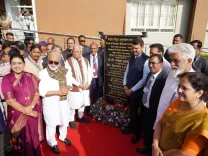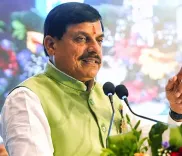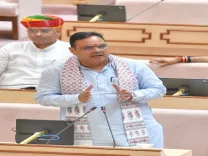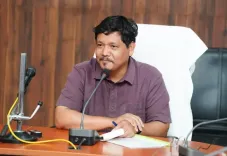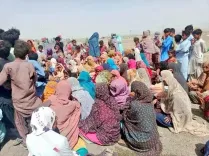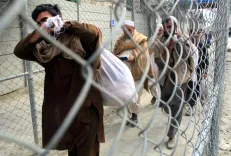Is the Government Hiding Casualty Numbers from Operation Sindoor?
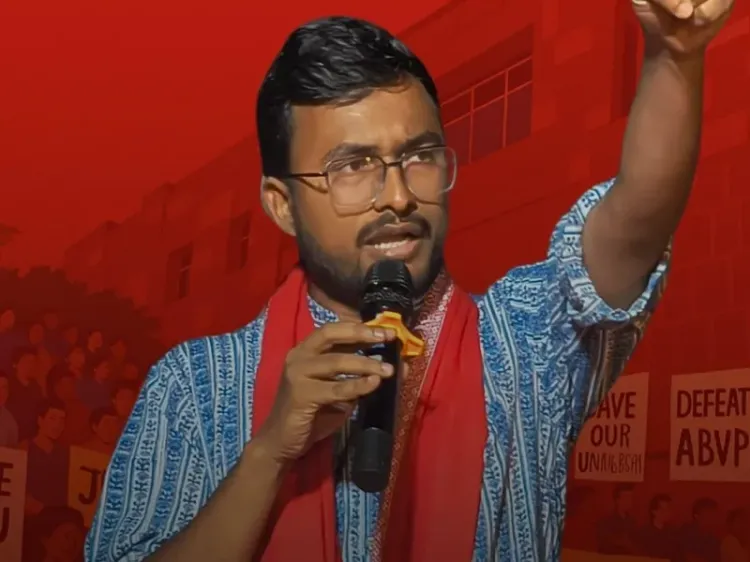
Synopsis
Key Takeaways
- Nitish Kumar demands transparency regarding military casualties.
- Criticism of the government's swift military response.
- Advocacy for diplomatic solutions over military action.
- Concerns about rising communal violence post-terror attack.
- Call for accountability and truth in the media reporting.
New Delhi, May 22 (NationPress) The President of the JNU Students' Union, Nitish Kumar, has expressed grave concerns regarding the government's management of recent military incidents, particularly surrounding “Operation Sindoor” and the Pahalgam terror attack.
He conveyed his dissatisfaction with the ongoing lack of transparency, highlighting that while the nation witnesses the return of soldiers’ mortal remains from various locations, there remains no official record of the precise casualties endured by the Indian Army.
In a detailed discussion with IANS on Thursday, Kumar urged the government to release accurate statistics, asserting that citizens deserve to know the genuine toll of conflict.
While condemning the terror attack in Pahalgam, he critiqued the government’s rapid military actions against Pakistan, suggesting that the response seemed premeditated and neglected accountability for significant internal security failures.
With India and Pakistan -- both nuclear-capable countries -- at loggerheads, he underscored the necessity for de-escalation and dialogue instead of warlike rhetoric. Kumar also expressed alarm over the disturbing rise in communal violence following the attack, especially incidents targeting Muslims.
He accused the government of not only failing to curb the escalating hate but also exacerbating a divisive narrative. Advocating for a diplomatic strategy over outright military conflict, he proposed that isolating Pakistan on the global stage for harboring terrorists would yield a more effective and sustainable solution.
"The manner in which our defense forces have reacted after the initial assaults has been evident; however, now we observe Pakistan asserting that the attacks were not limited to military objectives but also affected civilian areas. Although Pakistan's assertions are inconsequential, the core issue remains: should such matters be resolved through all-out war, or should we focus on diplomatically isolating Pakistan in the current scenario?" Kumar queried.
He referenced historical events, including those from 2018, as proof that military action alone has consistently failed to disrupt the cycle of violence.
Kumar raised the possibility of a conspiracy to disturb national peace, cautioning that such attacks and their reactions often escalate communal tensions, playing directly into the hands of factions aiming to divide the country.
"Indeed, it could be a conspiracy. If such an attack has occurred, its intent might be to disrupt the internal harmony of the nation -- to heighten communal discord. This has frequently transpired in the past, where such incidents are intentionally staged to instigate unrest within the country," he remarked.
In his closing comments, Kumar challenged the government to clarify whether the military strikes had fulfilled their intended objectives -- whether the perpetrators of the Pahalgam attack had indeed been neutralized and if the conditions in Kashmir, especially regarding safety and tourism, had improved.
While he welcomed the Army's decision to conduct a press briefing, he criticized some media outlets for disseminating misinformation, denouncing what he referred to as “Godi Media” for inciting jingoism by irresponsibly reporting attacks on Karachi and Islamabad.
He emphasized that the nation requires truth, not dramatics. Kumar reiterated his apprehensions about the absence of clarity regarding the actual number of casualties sustained by the Indian armed forces in the recent surge of violence. He acknowledged that while the country mourns the return of soldiers’ remains, the government has yet to provide a clear and formal account of the losses.
“The Pakistani army has asserted that they inflicted substantial damage, yet on our side as well, the Indian Army has faced losses. We have not received any clear data on the number of soldiers who have been martyred. We are merely witnessing mortal remains being returned from various locations, but there is no official count of the martyrs. This is something that requires clarification from the Army,” he stated.
Kumar denounced the terrorist attack but also criticized the government's management of the situation post-attack, particularly the surge in “communal tensions”.
He highlighted the dangers of escalating hostilities between India and Pakistan and advocated for a diplomatic, globally coordinated effort to isolate Pakistan if it continues to provide refuge to terrorists. He cautioned against employing full-scale military retaliation as a solution, emphasizing that war disproportionately affects the impoverished, and instead called for strategic, long-term measures.
Moreover, he pointed out that incidents of communal violence and misinformation propagated by certain media outlets further undermine national unity and distract from the primary issue—ensuring the safety and security of every Indian citizen, particularly in sensitive regions like Kashmir.

